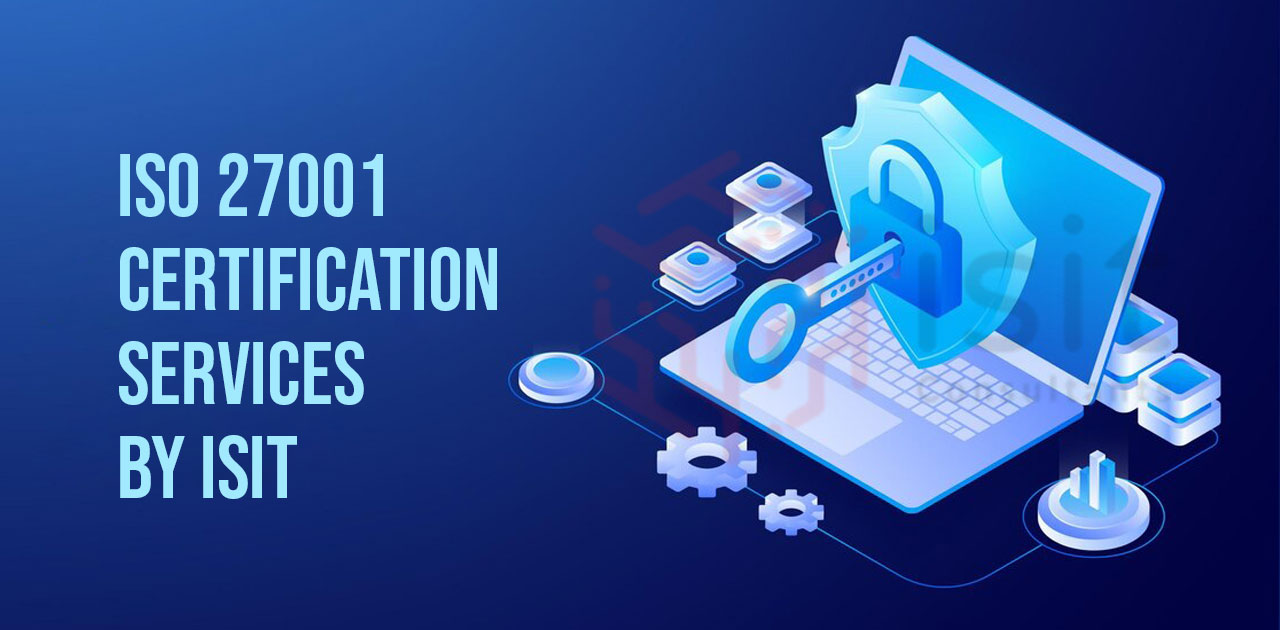The highest level for information security management systems (ISMS) around the world is ISO 27001 Certification. This license is recognised all over the world and shows that a company is serious about keeping private data safe by using organised risk management methods. Businesses can set up, use, manage, and keep improving their information security protocols with the help of the ISO 27001 Certification framework. Data breaches are becoming more common in the digital world, so getting this license is now necessary for businesses that deal with private customer data, intellectual property, or business data that needs to be kept secret.
The Need for ISO 27001 Certification in India is Growing
India is quickly becoming more digital, which has made ISO 27001 certification in India very important in many fields. Indian businesses in all fields, from healthcare and e-commerce to IT services and banks, are looking for this certification increasingly to improve their security and get ahead of the competition. The market for ISO 27001 certification India has grown especially among businesses that serve clients around the world who have high standards for data security. Information security standards are being used more quickly in the Indian business world thanks to government programs that support digital security and data localisation policies.
Why Bangalore Is the First City to Adopt ISO 27001 Certification
As the tech capital of India, Bangalore has become a centre for ISO 27001 Certification in Bangalore. Because there are so many IT companies, startups, and global capability centres in the city, there is a special need for strong information security frameworks. Companies that want to get ISO 27001 Certification in Bangalore can take advantage of the city’s large pool of cybersecurity experts and well-established network of certification bodies. A lot of ISO 27001 Consultants in Bangalore find that getting certified helps them meet client needs. This is especially true when they’re doing business in countries with strict data security laws like GDPR.
Step-by-Step Guide: How to Get ISO 27001 Certification?
For businesses that want to know how to get ISO 27001 Certification, the process usually involves a few main steps. The first step is to do a gap analysis to see how well existing security practices meet standard requirements. Next, organisations need to make and use all the policies, controls, and processes they need to fill in the gaps that have been found. Training and learning programs for employees are an important part of getting ready. After setting up the ISMS, businesses should use it for a few months while keeping the records that are needed before going through the certification check by a recognised body. From the start of the process to getting certified, it usually takes between 6 and 12 months, but this depends on the size and complexity of the organisation.
Understanding the Costs of ISO 27001 Certification in India and Abroad
The ISO 27001 certification cost depends on a lot of things, like the size of the organisation, the scale of the certification, and the current level of security maturity. Small businesses may have to pay between a few less amounts of cost for ISO 27001 certification compliance services, while big companies may have to pay lakhs or more in India and abroad. The cost of ISO 27001 Certification usually includes consulting fees, making paperwork, training employees, internal audits, and fees paid to the certification body. ISO certification costs that keep coming up include surveillance checks and getting recertified every three years. Even though the cost of ISO certification may seem high, most businesses find that the benefits of lower security risks and more trusting customers far beat the costs of getting certified.

Key Advantages of Getting ISO 27001 Certification
In addition to meeting legal requirements, ISO 27001 Certification offers many strategic benefits. Companies that are certified usually have fewer security issues and the costs that come with them. The certification can help you stand out from other bidders when you’re competing for government contracts and international business chances. It’s been found that an organised approach to risk management makes operations run more smoothly for many businesses. Certification also shows stakeholders that an organisation takes information security seriously, which can build trust with customers and possibly lead to more business possibilities.
Keeping Certification and Always Getting Better
Getting ISO 27001 Certification in India and abroad is not the end goal; it is just the start of a path to make security better all the time. To make sure they stay in compliance, certified organisations must do regular management reviews and internal checks. The standard call for full recertification audits every three years and surveillance audits every year by the licensing body. A lot of businesses set up information security teams or give people specific tasks to keep the ISMS up to date. This method to constant improvement helps businesses stay ahead of new cyber threats and get the most out of their security investments.
Conclusion: Trends in Information Security Certification for the Future
The standards for ISO 27001 Certification keep changing because cyber risks are always changing. More attention will probably be paid to new risks in later versions, such as cloud security, supply chain weaknesses, and AI systems. It’s getting increasingly important to include privacy control that works with standards like ISO 27701 certification. Getting certified today puts organisations in a good position to adapt to these changes in the future. This ensures long-term compliance and strong information security in India’s constantly changing digital world. Get in touch with ISIT for ISO 27001 certification and other ISO certification compliance services in India and abroad.

